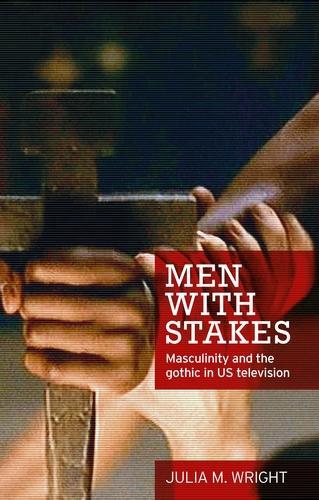
Men with Stakes: Masculinity and the Gothic in Us Television
(Hardback)
Publishing Details
Men with Stakes: Masculinity and the Gothic in Us Television
By (Author) Julia Wright
Manchester University Press
Manchester University Press
4th January 2016
United Kingdom
Classifications
Physical Properties
Hardback
200
Width 138mm, Height 216mm
Description
Men with stakes builds on recent discussions of television Gothic by examining the ways in which the Gothic mode is deployed specifically to call into question televisual realism and, with it, conventional depictions of masculinity. Released from the mandate of realism to describe the world as it is supposed to be, television Gothic calls attention to the constructedness of gender - and therefore to the possibility of re-imagining men's agency, authority and the legitimated forms of knowledge with which men are traditionally associated (science in particular). In this context, after an overview of Gothic television's larger history, this study discusses in some depth seven series from the last two decades: American Gothic, Millennium, Angel, Carnivale, Point Pleasant, Supernatural and American Horror Story. -- .
Reviews
For fans and scholars of the series like Supernatural the book is a delightful exploration into one aspect of what makes these series so resonant.
Bridget Kies, University of Wisconsin-Milwaukee, Historical Journal of Film, Radio and Television, January 2018
Men with Stakes is not always about masculinity per se. Chapter four deals with American Gothic televisions subversion of Enlightenment concepts such as science and progress and its postmodern blurring of the line between the world of signsincluding the televisual mediumand the world of the real (p. 124). However, as Wright indicates, many of these dynamics can be understood in gendered terms; she makes an especially fascinating contention that the first season of American Horror Story (2011 present) represents the film and television industry as a conventional [patriarchal] gothic villain (p. 150). Hence, even when Men with Stakes apparently strays from its theme, Wright is in fact adding weight to her central argument that Gothic TVs interrogation of masculinity is intertwined with larger examinations of social institutions, cultural assumptions, and established forms of knowledge (p. 5).
Eve Bennett, Universite Sorbonne Nouvelle, France, Critical Studies in Television: The International Journal of Television Studies
Author Bio
Julia M. Wright is Professor in the Department of English at Dalhousie University
